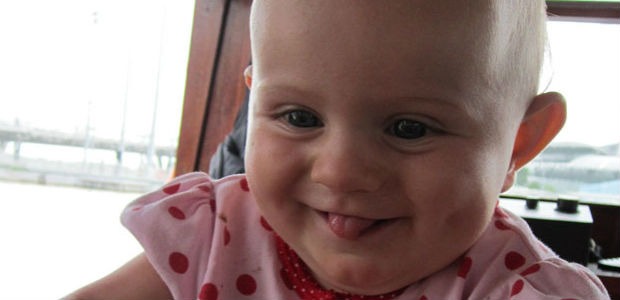This post was written by Susan Weymouth
Language is social. My colleague Joshua Yardley (look for all his great blog posts) recently recommended a brief lecture to me on Ted Talks, called “The Linguistic Genius of Babies” by Patricia Kuhl. Her research quantifies how infants develop their language abilities through hearing and selecting the sounds of the language spoken around them. When we are very young, we are completely flexible about the sounds we can hear and produce, but quite quickly we get somewhat stuck into the sound patterns to which we have been exposed. This cognitive phenomenon results in the well-documented Critical Period: it is almost impossible for second language learners to have native-sounding accents if they start after puberty.+
While the accent theory is fascinating, watching Dr. Kuhl’s brief lecture underscored a slightly different point for me: the strange, beautiful interconnectedness of social relationships, communication, cognition, and language learning. To explore the awareness of certain sounds in infants, Dr. Kuhl’s team sent native speakers into children’s homes to talk to them in a second language. Although they were too young to respond verbally, tests indicated that babies learned the sounds of a new language easily in this setting; they were completely open to these new people and their new language. On the other hand, when children were exposed to the same language in a video or audio format, it did not impact them. Those sources were just background noise while a person sitting and talking to them was a matter of great interest.
My conclusion is that the desire to communicate with others is the driving force behind all language learning. We hear, notice, and learn based on our curiosity about the people around us. Therefore, in planning my language classes, structuring all lessons around students’ natural need to find out about each other encourages my students to learn English. We make learning happen through reaching out and connecting. Language is social.










